
Cork: The Gem of Southern Ireland
Nestled along the banks of the River Lee, Cork is a vibrant city that blends history, culture, and natural beauty seamlessly. Often referred to as the 'Real Capital of Ireland,' Cork boasts a rich heritage that dates back to the 6th century. Wander through its charming streets, and you'll find a plethora of historic sites, quirky cafes, and bustling markets. St. Patrick's Street, the main artery of the city, is a shopper's paradise with its mix of high-end boutiques and local shops. Don't miss the English Market, a food lover's haven where you can sample everything from fresh seafood to artisanal cheeses. For a touch of history, visit the Cork City Gaol, a former prison that now serves as a museum, offering fascinating insights into Ireland's past. Nature enthusiasts will love the scenic beauty of Cork's surroundings. Take a short trip to Blarney Castle to kiss the famous Blarney Stone, or explore the stunning landscapes of the nearby Fota Wildlife Park. With its friendly locals, lively arts scene, and delicious culinary offerings, Cork is a destination that promises an unforgettable experience.
Local tips in Cork
- Visit the English Market early in the morning to avoid crowds and get the freshest produce.
- Wear comfortable shoes as Cork's hilly terrain can be tough on your feet.
- Take a stroll along the River Lee for picturesque views and a peaceful escape from the city's hustle.
- Check out the local music scene; Cork is known for its vibrant live music in pubs and venues.
- Consider using public transport or walking, as parking can be tricky in the city center.
Cork: The Gem of Southern Ireland
Nestled along the banks of the River Lee, Cork is a vibrant city that blends history, culture, and natural beauty seamlessly. Often referred to as the 'Real Capital of Ireland,' Cork boasts a rich heritage that dates back to the 6th century. Wander through its charming streets, and you'll find a plethora of historic sites, quirky cafes, and bustling markets. St. Patrick's Street, the main artery of the city, is a shopper's paradise with its mix of high-end boutiques and local shops. Don't miss the English Market, a food lover's haven where you can sample everything from fresh seafood to artisanal cheeses. For a touch of history, visit the Cork City Gaol, a former prison that now serves as a museum, offering fascinating insights into Ireland's past. Nature enthusiasts will love the scenic beauty of Cork's surroundings. Take a short trip to Blarney Castle to kiss the famous Blarney Stone, or explore the stunning landscapes of the nearby Fota Wildlife Park. With its friendly locals, lively arts scene, and delicious culinary offerings, Cork is a destination that promises an unforgettable experience.
When is the best time to go to Cork?
Iconic landmarks you can’t miss
Saint Fin Barre's Cathedral
A Gothic Revival masterpiece in Cork, blending medieval inspiration with Victorian artistry and rich spiritual symbolism.
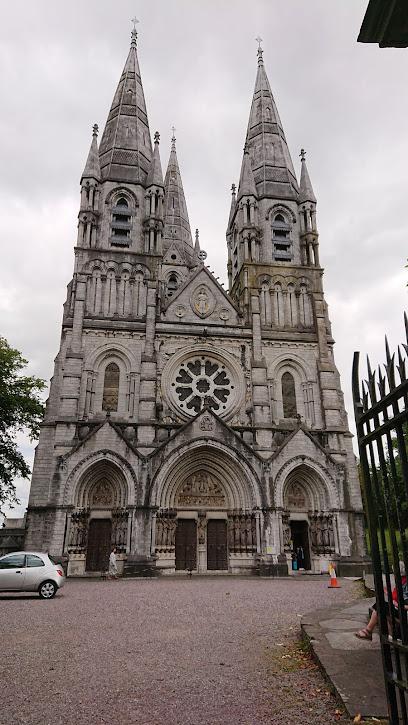
Elizabeth Fort
Seventeenth-century star-shaped fortress with panoramic city views and four centuries of layered history.
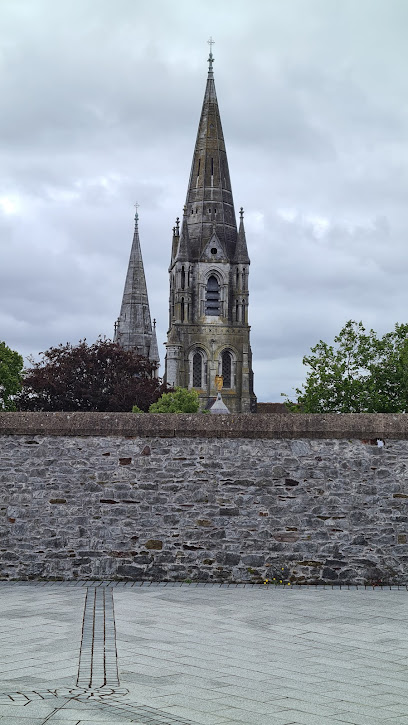
Cathedral of St Mary & St Anne, Shandon
Explore Cork’s majestic Neo-Gothic Cathedral, the spiritual heart of the Diocese of Cork and Ross, blending centuries of history, art, and faith.
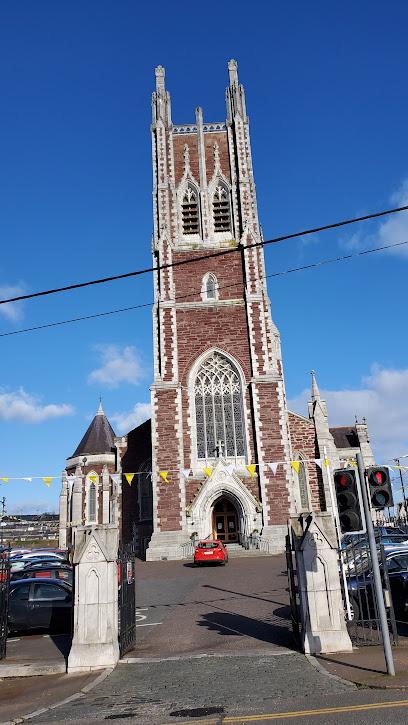
National Monument - Cork
A striking Gothic revival monument in Cork city honoring Irish patriots and the enduring spirit of independence.
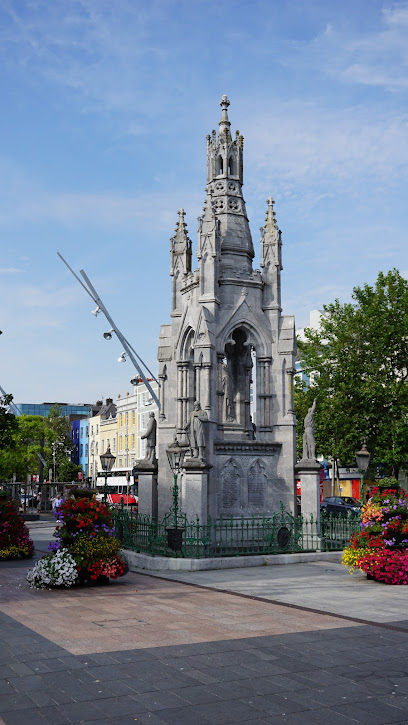
Downmacpatrick (Old Head) Castle
Ancient promontory fort on the Old Head of Kinsale, guarding centuries of Irish coastal history and overlooking the site of the Lusitania sinking.
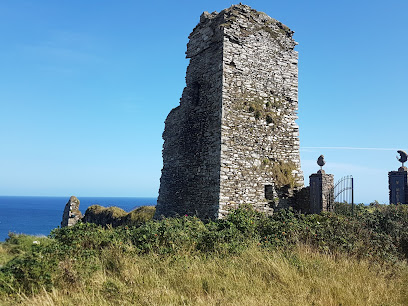
James Fort
A haunting 17th-century pentagonal fort commanding Kinsale Harbour, where history whispers through overgrown ramparts.
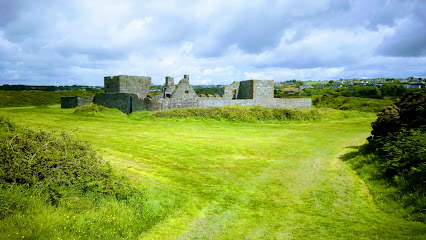
Red Abbey Tower
Discover Cork’s oldest medieval relic, the Red Abbey Tower, a striking red sandstone sentinel steeped in history and heritage.
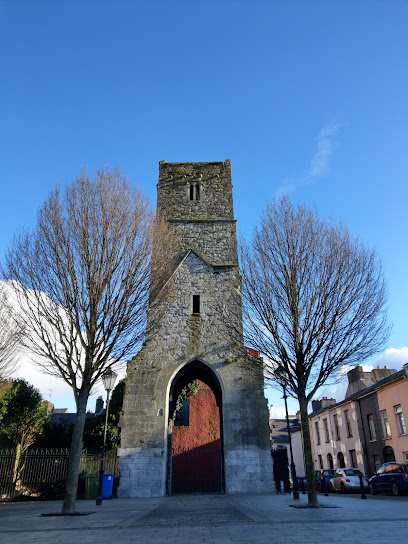
Shandon Clock Tower
Historic Shandon Clock Tower invites you to ring its famous bells and enjoy panoramic views over Cork’s vibrant cityscape.
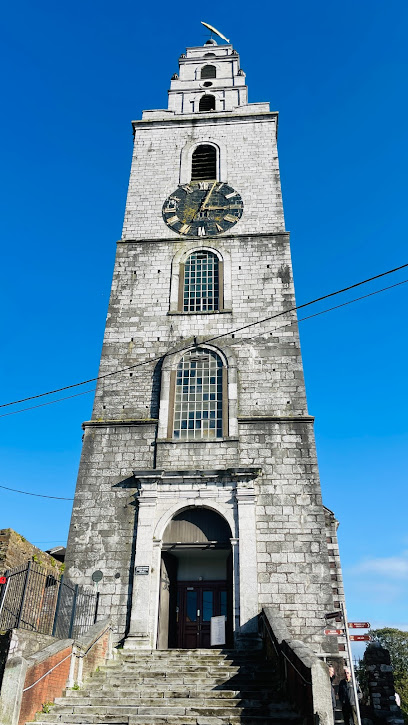
Eamon de Valera Bridge
A modern engineering landmark in Cork city centre, blending scenic river views with rich Irish heritage.
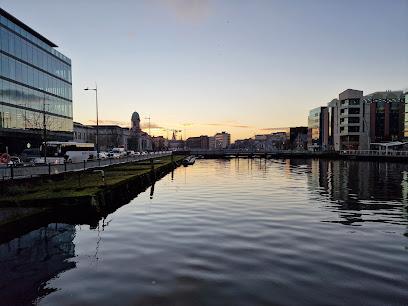
Nano Nagle Bridge
A modest footbridge over the River Lee in Cork, named in honour of pioneering educator Nano Nagle and offering peaceful riverside views.
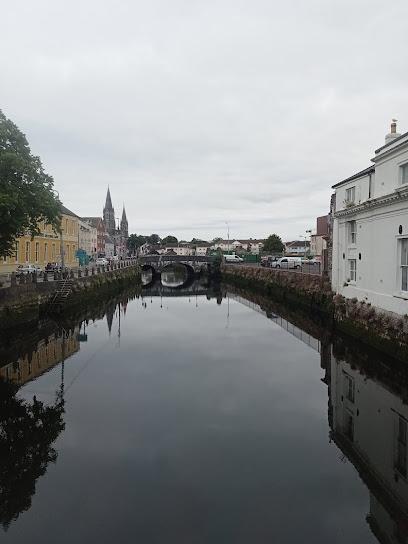
1 Pearse Square
Bronze memorial honoring Titanic victims at the ship's final Irish port of call
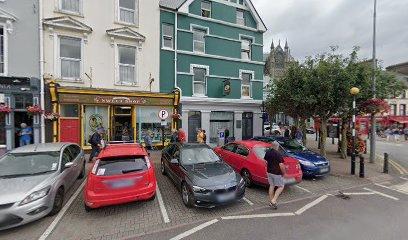
S Mall
Cork's elegant Georgian shopping street where historic architecture meets contemporary retail and culinary excellence.
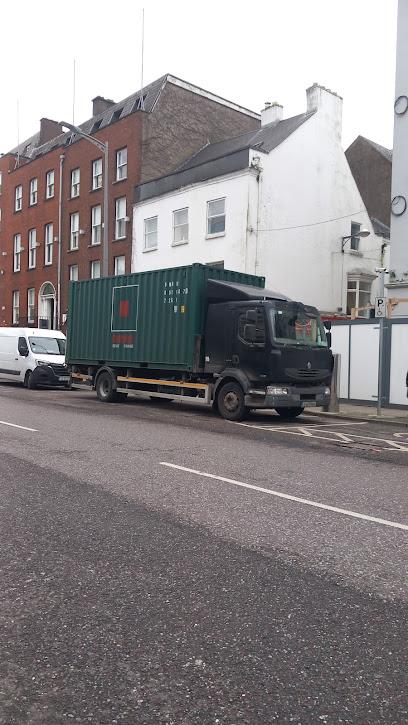
Unmissable attractions to see
Blarney Castle & Gardens
Discover Ireland’s iconic Blarney Castle & Gardens, home to the legendary Blarney Stone and 60 acres of enchanting parklands.
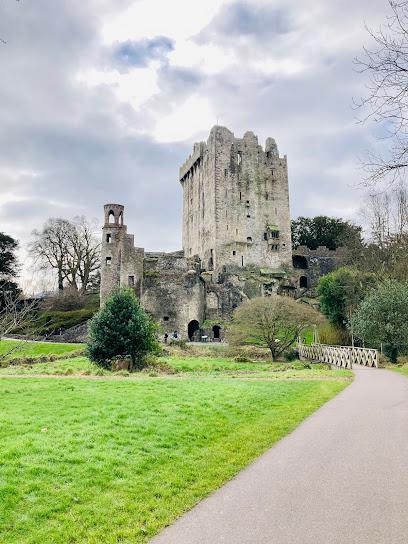
Blarney Castle & Gardens
Kiss the legendary Blarney Stone and explore 60 acres of enchanting gardens in Ireland's most iconic castle.
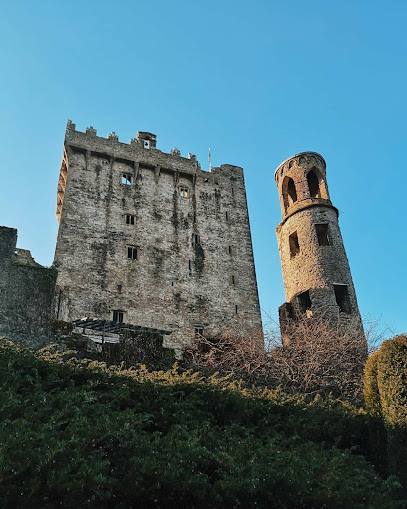
Mahon Point Shopping Centre
Cork’s largest shopping centre with over 60 stores, cinema, food court, and free parking – a modern retail and leisure hub just minutes from the city centre.
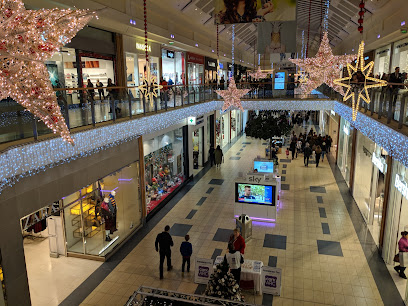
Wilton Shopping Centre
A bustling shopping hub in Cork’s western suburbs, offering over 65 stores, ample parking, and convenient access near Cork University Hospital.
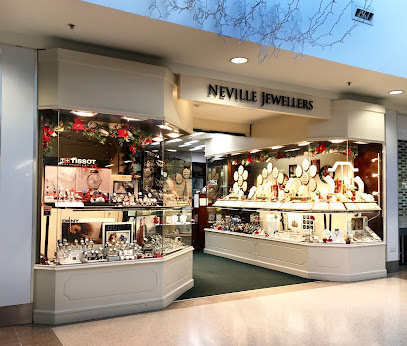
Fitzgerald Park
An 18-acre riverside retreat in Cork blending lush gardens, sculptures, a historic museum, and family-friendly spaces in a tranquil urban setting.

Blarney Stone
Discover the historic Blarney Castle and kiss the legendary stone that grants eloquence, set within 60 acres of enchanting Irish gardens.
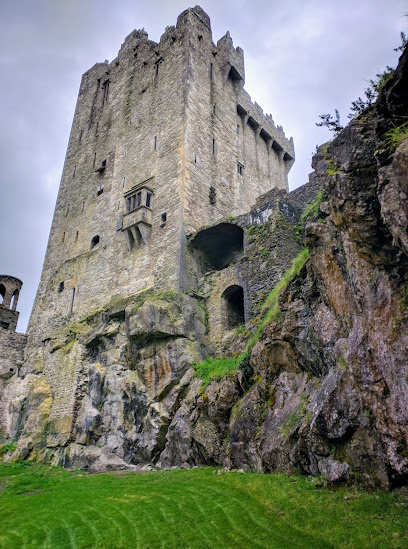
Merchants Quay Shopping Centre
A vibrant shopping and dining destination in the heart of Cork city, blending major retailers with cozy cafés and lively urban energy.
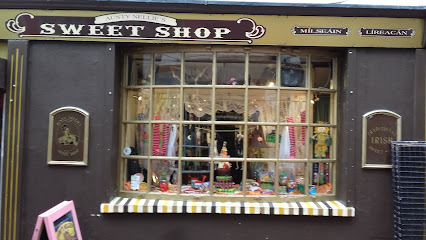
Titanic Experience Cobh
Step back in time at the White Star Line building where Titanic’s last passengers boarded, and experience an intimate journey through history and tragedy.
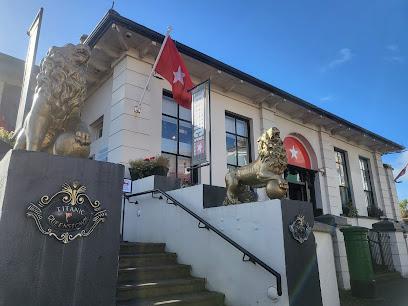
Charles Fort
Explore Charles Fort, a stunning 17th-century star-shaped fortress with panoramic views and rich military history on Ireland’s scenic Kinsale Harbour.

Blarney Woollen Mills
Discover authentic Irish woollens, crystal, and heritage crafts at the historic Blarney Woollen Mills near Cork.
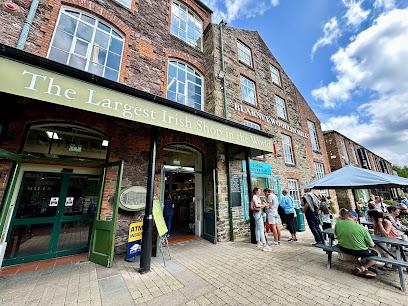
Marina Market
Cork’s largest indoor and outdoor market, offering diverse food, artisan crafts, and lively community events in a pet-friendly, modern space.
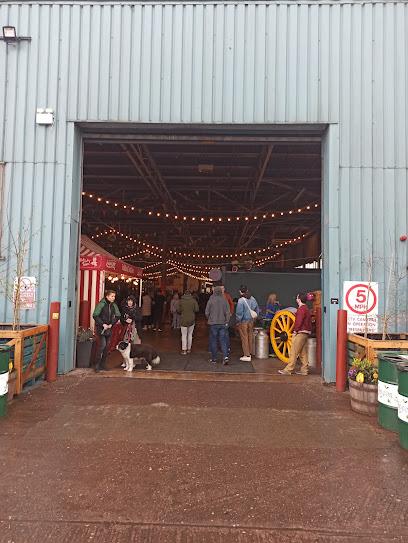
Charles Fort
Step into a 17th-century star fort on Kinsale’s headland, where military history meets sweeping Atlantic views and ghostly legends.
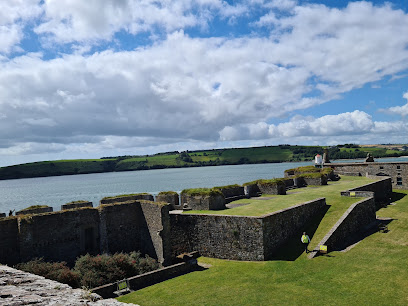
Blackrock Castle Observatory
Discover centuries of history and the wonders of the universe at Cork’s iconic Blackrock Castle Observatory.

Cork City Gaol
Step into 19th-century Irish prison history at this restored castle-like Gaol with wax figures, prisoner stories, and radio museum.
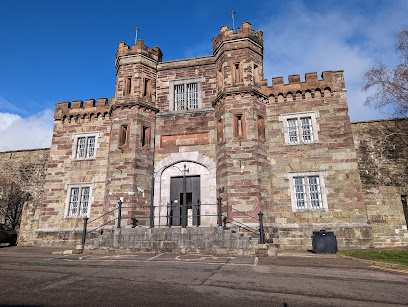
SuperValu Páirc Uí Chaoimh
Experience the heart of Cork GAA at SuperValu Páirc Uí Chaoimh, a modern stadium steeped in history and vibrant matchday energy.
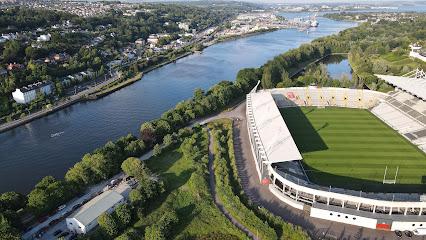
Essential places to dine
The Premier Inn Cork City
Modern, clean, and comfortable hotel in central Cork beside the River Lee, perfect for exploring city landmarks and enjoying great dining.
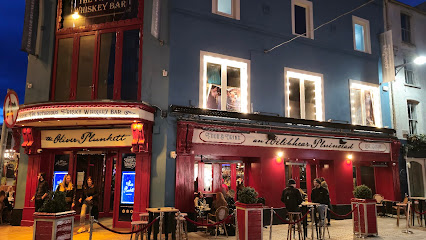
Market Lane
Award-winning Irish restaurant and bar in Cork city centre, famed for local ingredients, craft beers, and a lively, welcoming atmosphere.
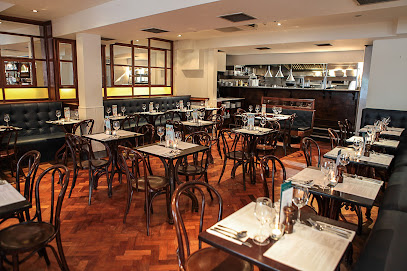
Son of a Bun
Lively burger spot in Cork’s Victorian Quarter, serving hearty, affordable American-style burgers with vegetarian and gluten-free options.
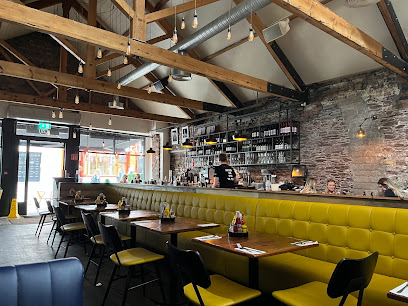
The SpitJack Cork
Award-winning rotisserie brasserie in Cork City offering locally sourced meats, innovative brunch, and a lively, welcoming atmosphere.
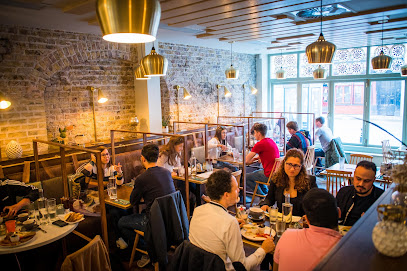
Scoozi
Family-friendly Italian dining with hearty portions and a welcoming atmosphere in Cork city centre.
The Linen Weaver - JD Wetherspoon
A lively three-floor pub in Cork’s city centre blending traditional Irish charm with modern dining and a rooftop beer garden.
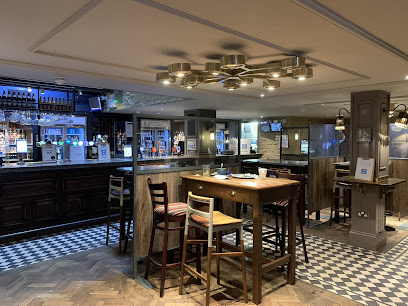
Quinlans Seafood Bar Cork
Experience the freshest Irish seafood in Cork with daily local catches, a vibrant atmosphere, and a commitment to sustainability at Quinlans Seafood Bar.
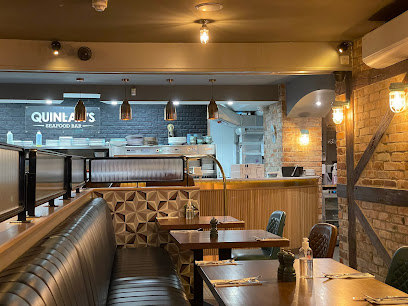
Luigi Malones Cork
Experience authentic Italian flavors and warm hospitality in the lively heart of Cork City at Luigi Malones.
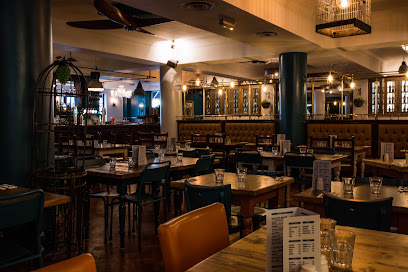
Liberty Grill
A vibrant New England-inspired eatery in Cork city centre, serving fresh, locally sourced brunch, lunch, and dinner with vegan and vegetarian options.
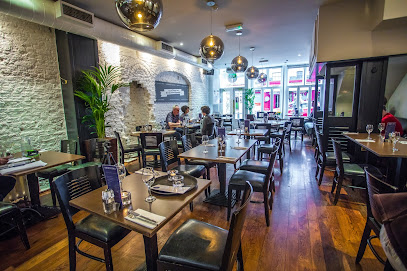
Gallagher's Cork
Experience Cork’s vibrant gastropub scene at Gallagher's, where legendary rock heritage meets fresh local cuisine and live music in the Victorian Quarter.
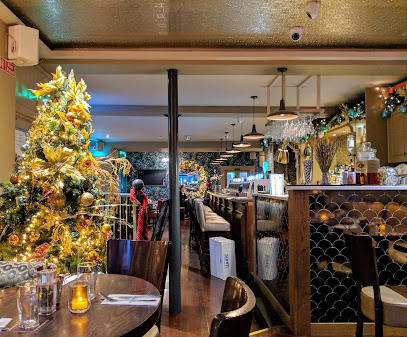
Nosta Restaurant
Experience authentic Mediterranean cuisine with fresh, Halal-certified dishes and generous portions in the heart of Cork City.
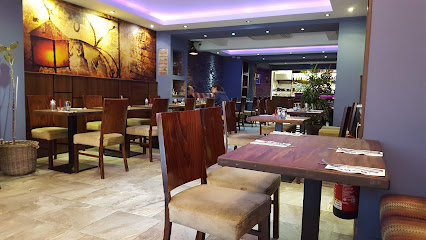
The Old Town Whiskey Bar at Bodega
A lively gastropub in Cork’s heart, famed for its vast whiskey range, traditional music, and welcoming atmosphere.
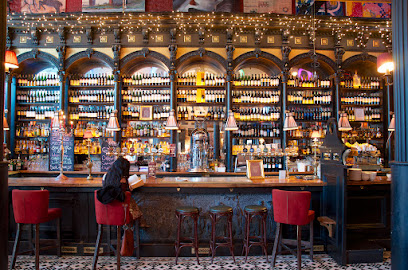
CoqBull
Savor succulent rotisserie chicken, gourmet burgers, and vibrant flavors at CoqBull, Cork’s lively hotspot for casual dining excellence.
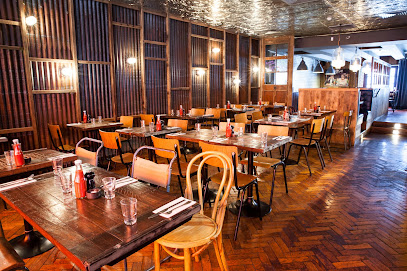
Cornstore Cork
Modern European gastropub in Cork’s city centre, blending local flavors with rustic charm and contemporary style.
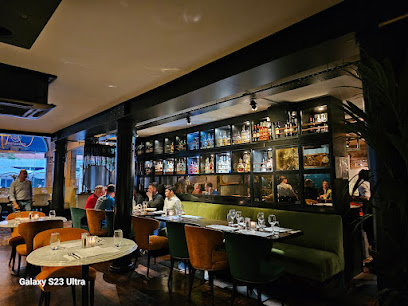
Boojum
Fresh, fast, and flavorful Mexican burritos in the heart of Cork city at unbeatable prices.
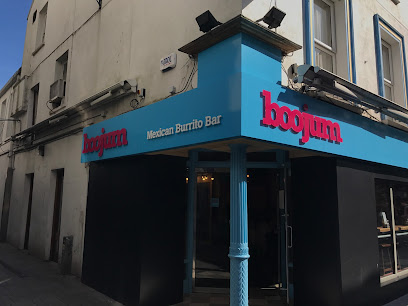
Markets, malls and hidden boutiques
Penneys
Affordable fashion and homeware in the heart of Cork’s vibrant Saint Patrick’s Street shopping district.
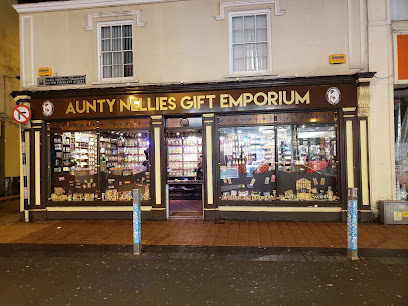
Blackpool Shopping Centre
A vibrant shopping destination in Cork’s Blackpool offering diverse retail, dining, and community experiences with convenient hours and friendly atmosphere.
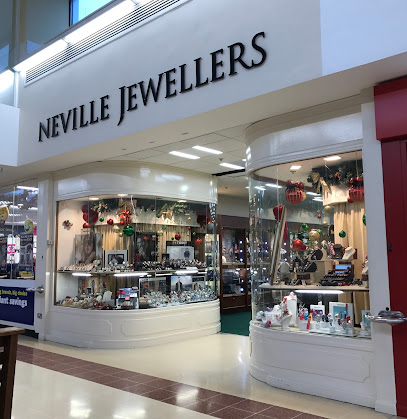
Douglas Village Shopping Centre
A vibrant shopping and dining hub in Douglas, Cork, open daily with diverse stores and community amenities.
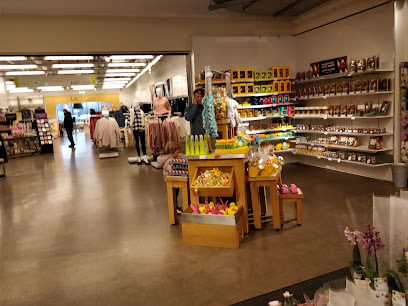
Home Store + More
Your go-to homewares destination in Cork offering variety, value, and convenience in Turners Cross Retail Park.
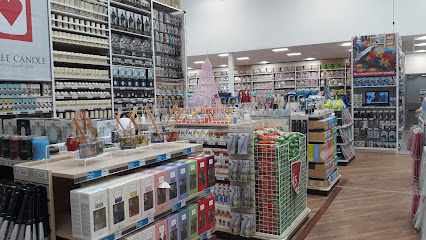
Carrolls Irish Gifts
Authentic Irish gifts and souvenirs in the heart of Cork, blending tradition and quality since 1982.
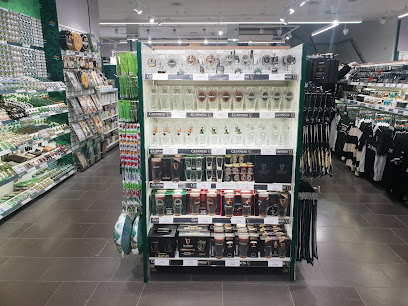
Paul Street Shopping Centre
A lively shopping and cultural hub in Cork’s Heritage Quarter blending local charm with modern retail and dining.
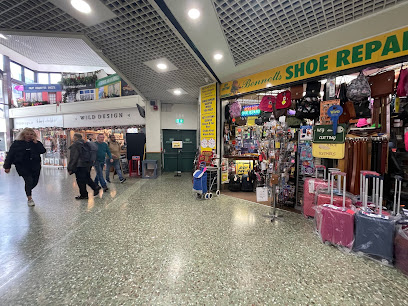
Turners Cross Retail Park
A premier retail destination in Cork offering home improvement, furnishings, pet supplies, and casual coffee in a convenient, accessible setting.
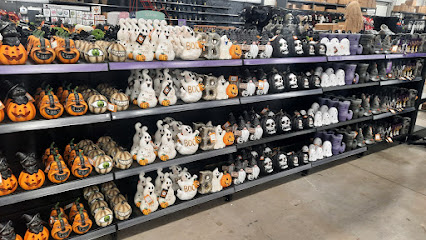
Søstrene Grene Cork
Scandinavian creativity and design inspiration in Cork's city centre.
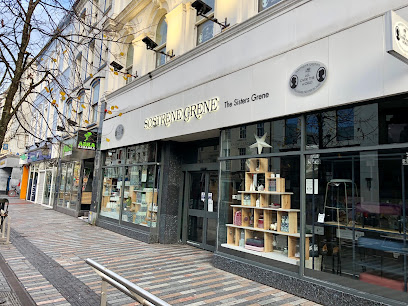
Flying Tiger
Colorful Scandinavian design meets budget-friendly shopping in Cork's vibrant city centre.
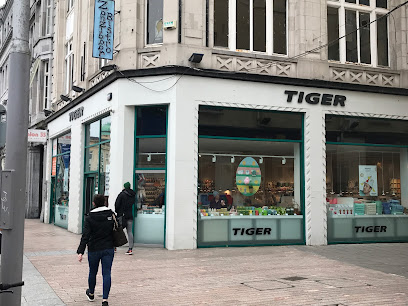
The Old Mill Stores
Award-winning independent shop showcasing curated homeware, vintage finds, and local crafts in rural West Cork.
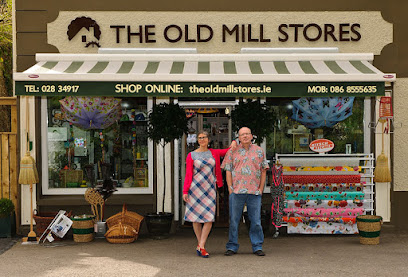
Unbound
Discover unique gifts and Irish creativity in Cork’s charming Victorian Quarter at Unbound, a vibrant boutique blending local and global styles.
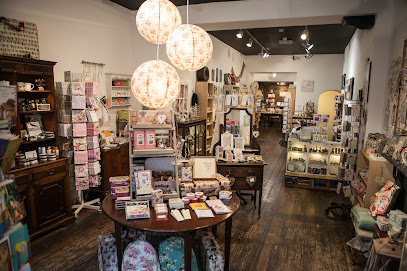
Cork Craft & Design
Discover authentic handmade crafts by Cork’s finest artisans in a vibrant cooperative shop nestled in historic Douglas Village.
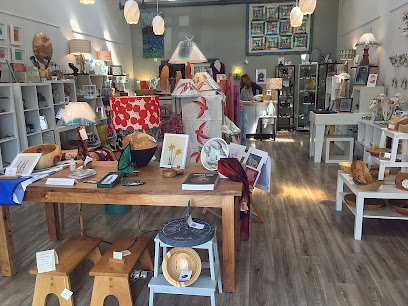
Handcrafts Cork
Discover authentic, handcrafted gifts and baby clothing from Cork’s talented artisans in a welcoming cooperative shop on North Main Street.
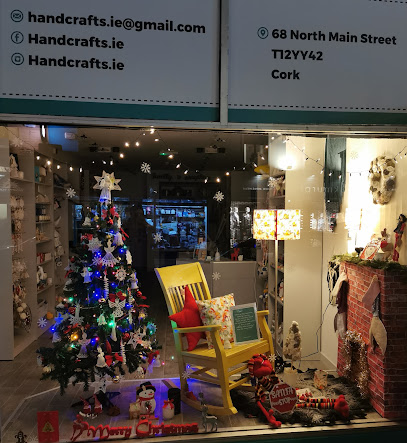
St Anthony Stores
A cherished family-run religious goods shop in Cork’s heart, offering spiritual treasures and a deep connection to local heritage.
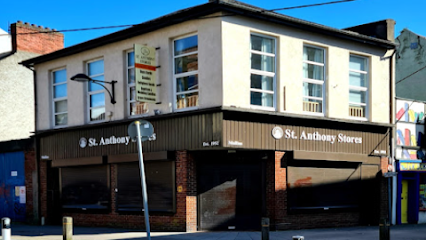
Sheena's Boutique
Discover timeless style and personalized fashion advice at Sheena's Boutique, a family-run ladies' clothing store in the heart of Cork city.
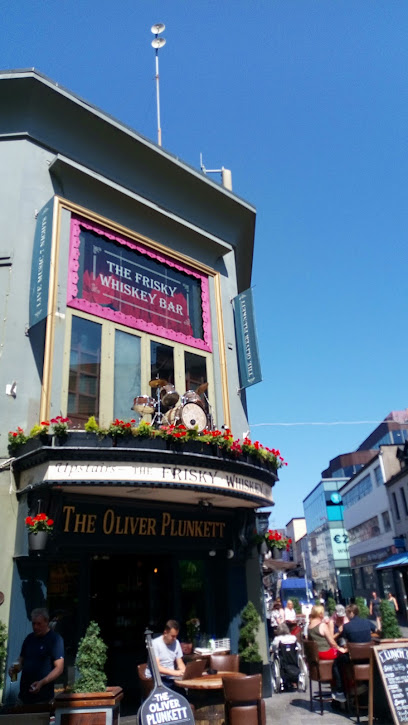
Essential bars & hidden hideouts
Old Oak
Experience authentic Irish hospitality and vibrant nightlife at Old Oak, a beloved pub on historic Oliver Plunkett Street in Cork City.
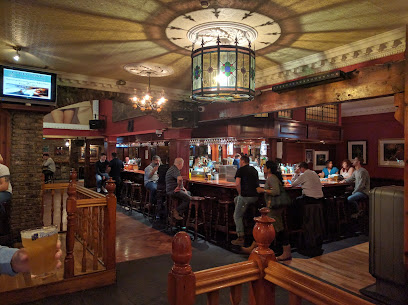
The Old Town Whiskey Bar at Bodega
A spacious, lively whiskey haven in Cork city centre blending historic charm with modern gastropub flair and a vast whiskey selection.
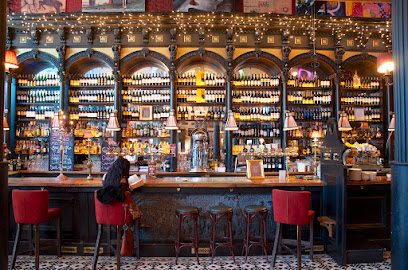
Mutton Lane Inn
Step into Cork’s historic Mutton Lane Inn for a cozy, traditional Irish pub experience with rich heritage and lively local charm.
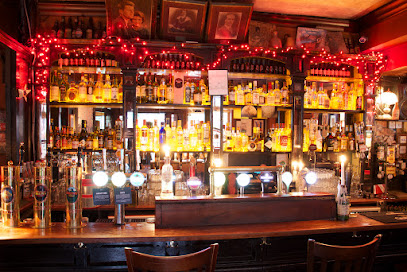
An Bróg Bar + Kitchen
Experience Cork’s vibrant Irish pub culture with legendary burgers, eclectic music, and a welcoming atmosphere on Oliver Plunkett Street.
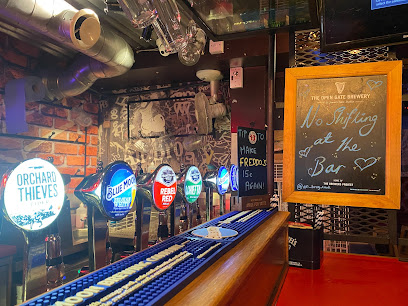
The Thomond Bar
Experience Cork’s top sports bar with hearty Irish fare, lively music, and a welcoming atmosphere in the heart of the city.
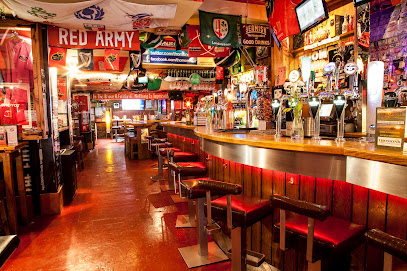
The Shelbourne Bar
Cork’s iconic Irish whiskey bar with over 540 bottles, award-winning service, and a warm, timeless atmosphere in the Victorian Quarter.
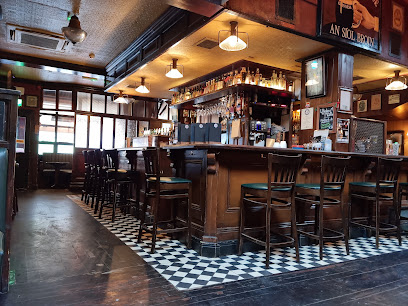
The Oval
Historic Cork pub famed for its unique oval ceiling, vintage charm, open fire, and lively alternative music scene in a cozy, candlelit setting.
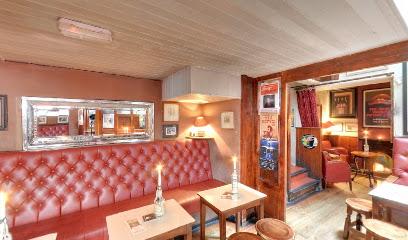
Arthur Mayne's Pharmacy
Step into Arthur Mayne's Pharmacy, a historic Cork venue blending 120 years of apothecary charm with vibrant wine bar culture and late-night dining.
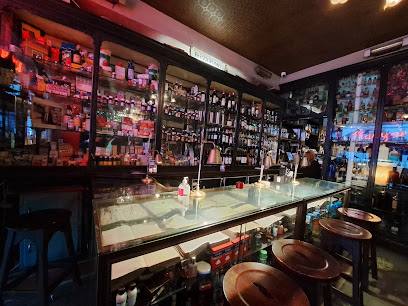
Cask
Innovative Irish cocktails and locally inspired tapas in Cork’s vibrant Victorian Quarter.
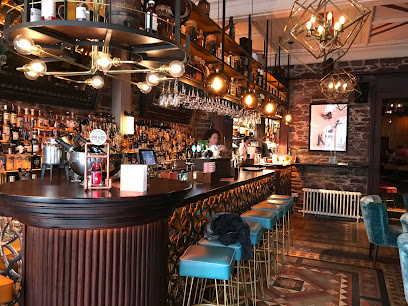
The Raven Bar
A lively Irish pub in Cork city centre offering innovative cuisine, expertly crafted cocktails, and warm local hospitality.
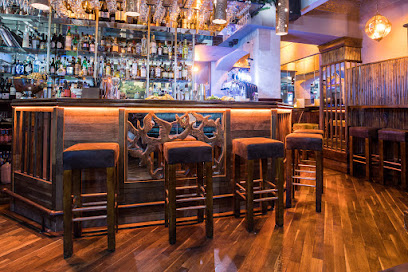
Le Chateau
Historic and cozy Irish bar in Cork’s city center, offering a warm atmosphere and a wide selection of drinks since 1793.
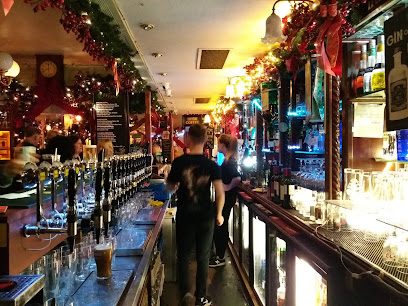
The Hi-B Bar
Step into The Hi-B Bar, a cozy 1920s Cork pub where tradition, live music, and heartfelt conversation create an unforgettable Irish experience.
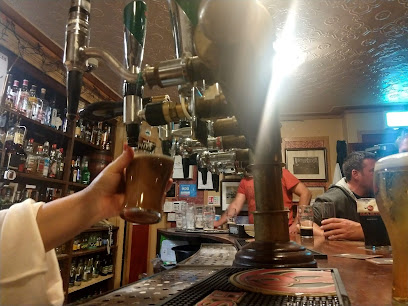
Impala
A cozy craft beer and cocktail bar in Cork offering an exceptional local brew selection and warm, friendly service.
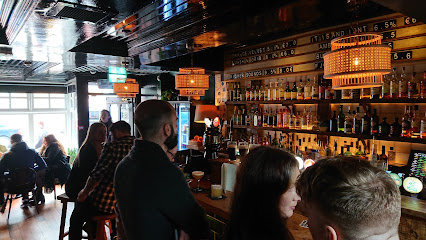
The Black Dog
A dynamic cocktail bar and taqueria in Cork’s city centre, blending authentic Mexican cuisine with alternative music vibes.
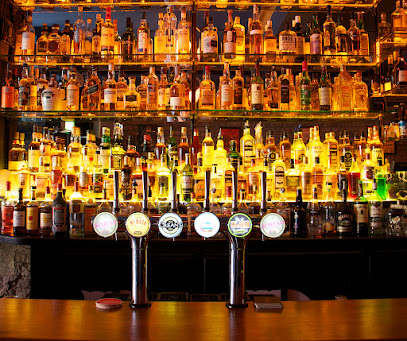
Local Phrases
-
- HelloDia duit
[Dee-uh gwitch] - GoodbyeSlán
[Slawn] - YesTá
[Taw] - NoNíl
[Neel] - Please/You're welcomeLe do thoil
[Leh duh hull] - Thank youGo raibh maith agat
[Guh rev mah agut] - Excuse me/SorryMaith thú
[Mah who] - How are you?Conas atá tú?
[Kun-us ah-taw too] - Fine. And you?Tá mé go maith. Agus tú?
[Taw may guh mah. Ah-gus too] - Do you speak English?An labhraíonn tú Béarla?
[On law-reen too bayr-lah] - I don't understandNí thuigim
[Knee hug-im]
- HelloDia duit
-
- I'd like to see the menu, pleaseBa mhaith liom an mhenu a fheiceáil, le do thoil
[Bah wah lyum un venuh ah eck-ahl, leh duh hull] - I don't eat meatNí ithim feoil
[Knee ih-him foh-il] - Cheers!Sláinte!
[Slawn-cheh] - I would like to pay, pleaseBa mhaith liom íoc, le do thoil
[Bah wah lyum ee-uk, leh duh hull]
- I'd like to see the menu, pleaseBa mhaith liom an mhenu a fheiceáil, le do thoil
-
- Help!Cabhraigh!
[Kow-ree] - Go away!Imigh uaim!
[Ee-mee ug-im] - Call the Police!Glan na Gardaí!
[Glan nah gar-dee] - Call a doctor!Glan dochtúir!
[Glan dohk-too-ir] - I'm lostTá mé caillte
[Taw may ky-alt-uh] - I'm illTá mé tinn
[Taw may chin]
- Help!Cabhraigh!
-
- I'd like to buy...Ba mhaith liom ceannach...
[Bah wah lyum kyawn-uk] - I'm just lookingNíl mé ach ag breathnú
[Neel may ahk eg breh-noo] - How much is it?Cé mhéad atá air?
[Kay vayd ah-taw air] - That's too expensiveTá sé ró-dháiríre
[Taw shay row gaw-ree-ruh] - Can you lower the price?An féidir leat an praghas a laghdú?
[On fay-dur lat un pray-guhs ah lay-goo]
- I'd like to buy...Ba mhaith liom ceannach...
-
- What time is it?Cén t-am é?
[Kane tahm ay] - It's one o'clockTá sé a haon a chlog
[Taw shay ah hayn ah khlog] - Half past (10)Leathuair tar éis a deich
[Lah-hoo-er tar aysh ah deh] - MorningMaidin
[Mah-jin] - AfternoonTráthnóna
[Tray-noh-nuh] - EveningTráthnóna
[Tray-noh-nuh] - YesterdayInné
[In-ay] - TodayInniu
[In-yoo] - TomorrowAmárach
[Ah-maw-rak] - 1Aon
[Ayn] - 2Dó
[Doh] - 3Trí
[Tree] - 4Ceathair
[Cah-her] - 5Cúig
[Koo-ig] - 6Sé
[Shay] - 7Seacht
[Shakht] - 8Ocht
[Ukht] - 9Naoi
[Nee] - 10Deich
[Deh]
- What time is it?Cén t-am é?
-
- Where's a/the...?Cá bhfuil...
[Kaw will] - What's the address?Céard atá ar an seoladh?
[Kay-ard ah-taw air un show-lah] - Can you show me (on the map)?An féidir leat a thaispeáin liom (ar an léarscáil)?
[On fay-dur lat ah hash-payn lyum (ar un lare-scaul)] - When's the next (bus)?Cathain atá an bus eile?
[Kah-hayn ah-taw on bus el-eh] - A ticket (to ....)Ticead (go dtí ....)
[Tick-ad (guh dee)]
- Where's a/the...?Cá bhfuil...
History of Cork
-
The history of Cork in the United Kingdom dates back to ancient times when early settlers established small communities in the area. Archeological evidence suggests that the region was inhabited by Celtic tribes, who were later influenced by Roman conquests. The strategic location of Cork made it an essential hub for trade and communication during these early periods.
-
During the medieval period, Cork saw significant development with the establishment of fortified structures and religious institutions. The town grew around a central market square, becoming an important center for commerce and craftsmanship. The influence of the Norman invasion in the 12th century also left a lasting imprint on the architecture and societal structure of Cork.
-
The advent of the Industrial Revolution in the 18th and 19th centuries brought profound changes to Cork. The town transitioned from an agrarian economy to an industrial powerhouse, with the establishment of textile mills, ironworks, and shipbuilding industries. The population grew rapidly as people moved to Cork seeking employment opportunities.
-
Cork played a crucial role during World War II, serving as a strategic location for military operations and supply routes. The town endured air raids and contributed significantly to the war effort through its manufacturing capabilities. The aftermath of the war saw extensive rebuilding and modernization of the town's infrastructure.
-
In recent decades, Cork has experienced a cultural renaissance, with a renewed focus on preserving its rich heritage and promoting the arts. The town is now known for its vibrant cultural scene, including music festivals, art exhibitions, and literary events. This cultural resurgence has helped Cork become a popular destination for tourists and history enthusiasts alike.
-
Today, Cork is a bustling town that seamlessly blends its historical legacy with modern amenities. The town center boasts a mix of historic buildings and contemporary architecture, reflecting its dynamic evolution. Visitors can explore a range of attractions, from ancient landmarks to cutting-edge cultural institutions, making Cork a unique and captivating destination.
Cork Essentials
-
Cork is located in southern Ireland, not the United Kingdom. The nearest international airport is Cork Airport, which is approximately 8 kilometers from the city center. You can also fly into Dublin Airport and take a train or bus to Cork; the journey typically takes about 2.5 to 3 hours by train and around 3.5 hours by bus. Additionally, Cork is well connected by rail and road to other major cities in Ireland.
-
Cork's public transportation system includes buses operated by Bus Éireann, which cover the city and surrounding areas. Taxis are readily available and can be hailed on the street or booked via phone or app. For a more flexible option, car rentals are available at Cork Airport and in the city center. Biking is also popular, with several bike rental shops and dedicated cycling paths. For exploring on foot, many of Cork’s attractions are within walking distance of each other.
-
The official currency in Ireland is the Euro (€). Credit and debit cards are widely accepted in hotels, restaurants, and shops. Contactless payments are also common. ATMs are plentiful throughout Cork, and most accept international cards. It's advisable to carry a small amount of cash for smaller establishments or in case of emergencies.
-
Cork is generally safe for tourists. However, like any city, it is wise to stay vigilant. Avoid walking alone at night in isolated areas, and keep your belongings secure in crowded places. Areas such as Shandon Street and some parts of the Northside can have higher crime rates, so exercise caution. Always be aware of your surroundings and take standard safety precautions.
-
In case of emergency, dial 112 or 999 for immediate assistance from police, fire services, or an ambulance. Cork University Hospital is the main medical facility in the city. Pharmacies are available throughout Cork for minor health issues. It is recommended to have travel insurance that covers medical emergencies.
-
Fashion: Do dress casually; smart casual is suitable for most dining and entertainment venues. Avoid overly revealing clothing. Religion: Do respect religious sites by dressing modestly and remaining quiet. Public Transport: Do be polite and give up your seat to elderly passengers or those in need. Don't eat or drink on public transport. Greetings: Do greet people with a friendly 'hello' or 'hi'. A handshake is common in formal settings. Eating & Drinking: Do try local delicacies such as Irish stew and seafood. Don't leave a large tip; 10-15% is customary if service is not included.
-
To experience Cork like a local, visit the English Market, where you can find fresh produce and local specialties. Enjoy a walk along the River Lee or take part in a traditional music session at one of the local pubs. For a unique experience, take a trip to the nearby Fota Wildlife Park or explore the historical sites such as Blarney Castle and Cork City Gaol. Engaging with locals can provide valuable insights into the culture and history of Cork.
Nearby Cities to Cork
-
Things To Do in Kinsale
-
Things To Do in Killarney
-
Things To Do in Limerick
-
Things To Do in Tralee
-
Things To Do in Waterford
-
Things To Do in Ennis
-
Things To Do in Kilkenny
-
Things To Do in Dingle
-
Things To Do in Wexford
-
Things To Do in Salthill
-
Things To Do in Galway
-
Things To Do in Athlone
-
Things To Do in Bray
-
Things To Do in Dublin
-
Things To Do in Westport













